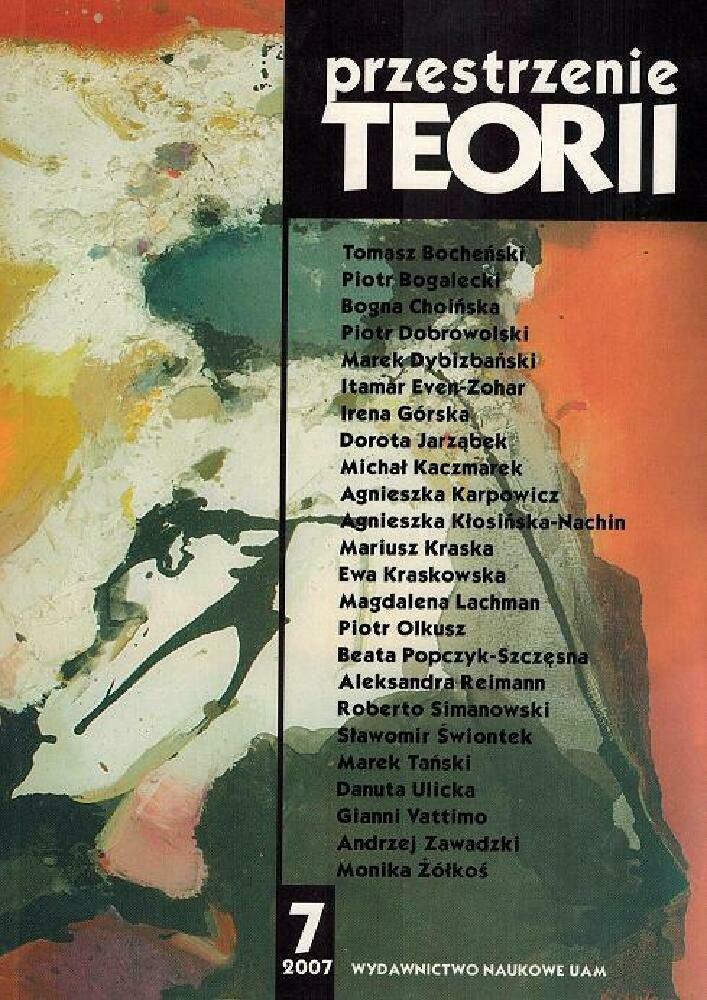Abstract
The article presents some reflections on a dramatic motive of a bali (including a masked bali) in Polish 19,h and 20,h century drama, and tightly connected with this a problem of a polilogue (dialogue of a group of people as opposed to an ordinary dialogue with two persons involved). A masked bali in a drama gives an opportunity to show various ways of concealing and creating one's personality. It may be used as a sharp satirical cabaret, a grotesque composition on the edge of reality and dream (Za kulisami) or a kind of metaphor for processes of a human History (Operetka). Ali the cases are based on a fruitful use of a polilogue. It enables a playwright to intensify dramatic action, to give the show some scenic shine and colours, and also to penetrate into the question of characters' ontology: their existence in the polyphonic dialogue as a real being or a sketch, a sign of a person, a chorus or simply a background.License
Authors
Authors of texts accepted for publication in Przestrzenie Teorii are required to complete, sign and return to the editor's office the Agreement for granting a royalty-free license to works with a commitment to grant a CC sub-license.
Under the agreement, the authors of texts published in Przestrzenie Teorii grant the Adam Mickiewicz University in Poznań a non-exclusive, royalty-free license and authorize the use of Attribution-NonCommercial-NoDerivatives 4.0 International (CC BY-NC-ND 4.0) Creative Commons sub-license.
The authors retain the right to continue the free disposal of the work.
Users
Interested Internet users are entitled to use works published in Przestrzenie Teorii since 2015, for non-commercial purposes only, under the following conditions:
- attribution - obligation to provide, together with the distributed work, information about the authorship, title, source (link to the original work, DOI) and the license itself.
- no derivatives - the work must be preserved in its original form, without the author's consent it is not possible to distribute the modified work, such as translations, publications, etc.
Copyrights are reserved for all texts published before 2015.
Miscellaneous
Adam Mickiewicz University in Poznań retains the right to magazines as a whole (layout, graphic form, title, cover design, logo etc.).
